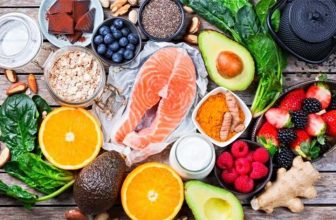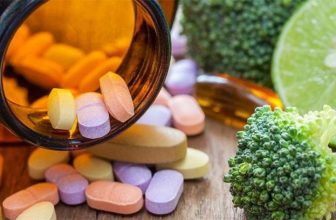
Vegetarianism has become a popular lifestyle choice, with more people switching for health or ethical reasons. For people who work out or bodybuild and are looking to bulk, it may be challenging to know what to eat since you need to consume more protein to bulk up or add mass.
It’s a misconception that the best protein sources come from animal products, and that you have to include more animal products into your diet to bulk. In contrast, it’s possible and just as effective to bulk up on a vegetarian diet as on a diet based on animal products. If you’re trying to bulk and are looking for the best vegetarian protein sources, follow on for 4 Best Protein Substitutes for Vegetarians on Bulking Diets!
1. Seitan
Seitan is a popular meat replacement among vegetarians because, unlike soy-based meat replacements or mock meats, Seitan looks a lot like real meat and has a similar texture.
Seitan is also referred to as wheat meat since it’s made from gluten which is the primary protein in wheat. It’s high in protein, containing around 25g per 100g. It also contains calcium, iron, and phosphorus. If Seitan is new to you and you’re keen to try it, you’ll find it in the refrigerator section of most health food stores. Depending on where you live, you may even find it at your local grocery store.
Seitan is hugely versatile; there are many ways to prepare it and incorporate it into your meals for added protein. Chop it up and toss it into stir-fries, casseroles and stews. Marinade it in spices, stick it onto skewers, and grill or pan-fry. For a more subtle taste, sautee it in a bit of garlic and oil and enjoy it with a side of veggies. Another popular option is to coat it in breadcrumbs to make vegan chicken nuggets or meat-free burgers.
The only thing to remember is that since Seitan is made from wheat, it isn’t suitable for people with wheat and gluten allergies or intolerances.
2. Whey Protein
Whey protein is an excellent protein source that’s derived from dairy. It’s the liquid that separates from milk when cheese is made and contains all the essential amino acids. Whey protein is also easy to digest and absorbs from your gut faster than other types of protein.
Many athletes incorporate whey protein in their diet because it helps their muscles recover quickly after an intense workout, promotes muscle growth, and provides enough energy to get the most out of a workout session.
There are many whey proteins on the market, each for different purposes, so it’s best to go online and read whey protein reviews to find one that suits your needs and lifestyle.
Whey protein is usually sold in powder form. You can mix it with a liquid like water, milk, or coconut water for a quick snack or meal on the go or blend it with fruit and ice to make a smoothie. You can also increase your protein intake by adding it to oatmeal or pancake batter.
3. Tofu
Tofu is a staple in Asian cuisine and is made from soya. It’s made similar to cheese – fresh soy milk is curdled, pressed into a block, and then cooled. Since it doesn’t have much flavor on its own, it absorbs the flavors of the herbs, spices, and other ingredients cooked with it, and it’s incredibly versatile. Its texture can be crispy, crunchy, soft, or smooth, depending on how it’s cooked.
Apart from being a complete source of protein, tofu also contains antioxidants. It is generally safe for everyone to consume except for people with soya intolerances or allergies. Add tofu to salads, wraps, stir-fries, curries, and stews to boost protein.
4. Beans
Kidney, lima, black, pinto, and cannellini beans are just some of the types of beans available. With this wide variety of beans, you can regularly incorporate them into your diet without getting bored of the taste.
Beans are reasonably cheap and are high in protein, with most types of beans containing about 15g of protein in about 170g of beans. They are also complex carbs, high in fiber and contain potassium, magnesium, iron, folate, and phosphorus.
If you’re searching for creative ways to sneak more beans into your diet, consider pureeing them and using them as a base for sauces or dips, mash and use to make burgers, or toss into stews and soups.
Bulking on a vegetarian diet is possible as long as you ensure you hit your protein macros. You can incorporate more plant-based protein, like whey protein, seitan, tofu, and beans. Most plant proteins are highly versatile, so you can include them in different dishes and experiment with various veggies to keep the flavors interesting.
Which foods do you consume to bulk up? Fancy giving it a try on a vegetarian diet? Let us know in the comments below and on Facebook, Twitter & Instagram!









